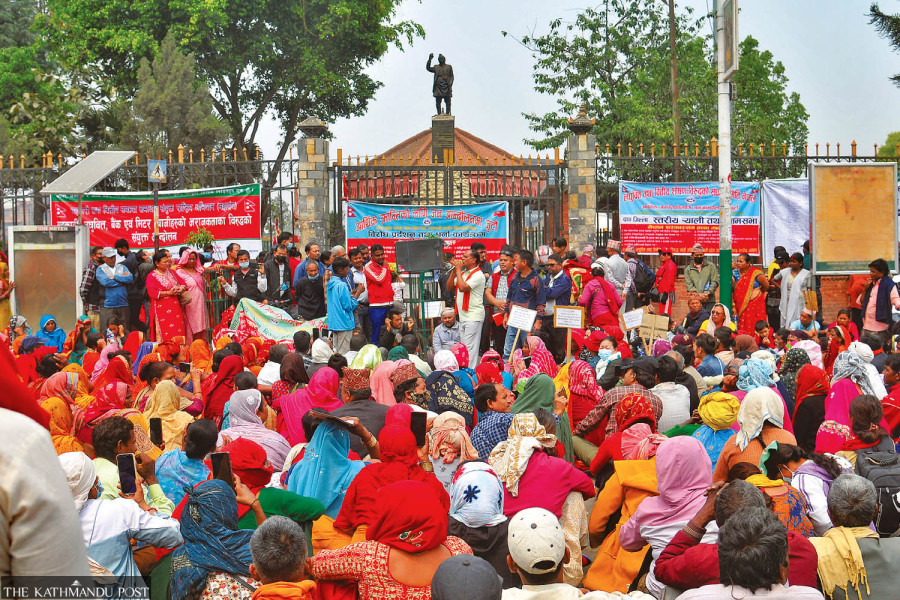Editorial
Running out of patience
First, fraudulent cooperatives cheated them, now the state is indifferent to their plight.
It is unfortunate that Nepalis have to protest in the street for years to get back their hard-earned money. It has been a couple of years since thousands of cooperative victims have routinely protested in Kathmandu, demanding return of their money embezzled by fraudulent cooperatives. They demonstrated in their respective districts before descending on the federal capital, hoping that drawing the attention of the central authorities in Kathmandu would help them get back their deposits. The victims were compelled to take to the streets after authorities didn’t take any measures to help them. According to a Post report published in February, 2023, more than 2,000 victims had filed complaints at the Kathmandu Metropolitan City office alone against 123 cooperatives that, at the time, owed their depositors over Rs960 million. Such complaints have been filed with local governments, police offices and other relevant agencies across the country.
To bring the government attention to their plight, the victims held protests at Maitighar-Baneshwar stretch and staged sit-ins for days and weeks over these years. They ended their 108-day protest after reaching an eight-point agreement in March last year. But they then resumed the third phase of protests in June after the government failed to implement the agreement. As they started yet another round of protest, the victims looked frustrated. They were desperate: first, unscrupulous cooperatives cheated them and now successive governments have been betraying their trust.
Last year, the subject of cooperative frauds became a heated issue in the federal Parliament. The House of Representatives formed a special parliamentary probe committee to study the matter and several recommendations were later submitted to the government. The executive implemented some of them, including the formation of a high-powered National Cooperative Regulatory Authority. However, the government didn’t even pick the chief of the authority. Soon the promises made to the victims were forgotten.
There have been multiple rigorous studies since the 1990s. Last year, the finance minister, while unveiling the fiscal budget in Parliament, announced to return depositors’ savings of up to Rs500,000 by selling properties of problematic cooperatives. Also, the study report submitted last week by former finance secretary Rameshore Khanal has given multiple solutions to this effect. His report also emphasised the return of the deposits as per the policy announced through the budget last year.
According to a government estimate, around three million people are members of over 34,000 cooperatives operating across the country. Such high numbers offer a hint of the magnitude of the problem, and further procrastination on the state’s part may invite a grave crisis. The issue must be solved before the victims run out of patience. When genuine concerns of such victims aren’t addressed on time, they may seek the support of illegitimate forces, just like some microfinance victims have done from a controversial businessman like Durga Prasai.
The issue must be dealt with urgency. The government should immediately appoint a competent chief of the National Cooperative Regulatory Authority and start returning the money of the depositors as announced in the budget last year. Other measures should be taken based on recommendations of parliamentary and other study panels (Or why waste time and money on such studies?). But if the ruling parties pick an individual for the position based on political loyalty, that could invite more problems than it would help solve. Surely, it isn’t too much for the victims to expect a smidgen of honesty and commitment from their government.




 10.12°C Kathmandu
10.12°C Kathmandu













